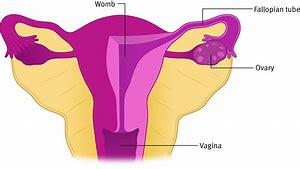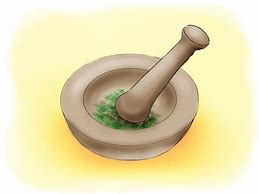Can I Ovulate Normally with Tubal Blockage?
Ovulation is not directly related to tubal blockage because the egg is discharged from the ovary, not the fallopian tube. Whether a woman can ovulate is only related to the normal ovarian function. However, when the fallopian tube is blocked, the uterus of the fertilized eggs will be obstructed, or even lead to the inability of the fertilized eggs to enter the uterus, which leads to female infertility.

If women have ovulation disorders, the leading causes are usually related to central nervous system factors, hypothalamus factors, pituitary factors, ovary itself or ovarian-related diseases, such as polycystic ovary syndrome, luteinized non-rupture follicle syndrome. Other endocrine diseases besides gonads, also affect ovarian ovulation. And some systemic diseases such as severe malnutrition can also affect the regulation of ovarian function and lead to ovulation disorders.
The fallopian tube is an essential reproductive channel for sperm-egg combination. It plays the role of transporting sperm-egg and fertilized eggs after sperm-egg combination. It transports the eggs discharged periodically every month into the uterine cavity. The flow of eggs depends on the peristaltic function of the fallopian tube.
The fallopian tube has extremely complex and delicate physiological functions, which play an essential role in the egg collection, fertilization, transfer of fertilized eggs, and the survival and development of early embryos. Therefore, although tubal blockage does not affect ovulation, it may lead to female infertility.

Tubal blockage mainly leads to female infertility, accounting for 25% to 35% of female infertility. Therefore, in order to be able to conceive healthy babies, female friends must timely identify the causes and actively treat them. Surgical treatment is a popular method at present, such as common salpingography and hydrosalpingography.
These are not only a means of examining the blocked fallopian tubes but also can play a certain therapeutic effect on relatively mild adhesion blockage. Generally, after 2-3 times of surgery, patients with the mild condition can achieve a great effect.
Modern medicine is a treatment mainly based on eliminating inflammation; the effect on sever condition is not very obvious. Therefore, clinical drug treatment is mainly based on traditional Chinese medicine, such as the current herbal medicine Fuyan Pill with a high clinical cure rate, and the treatment effect is also recognized by many patients. It can dredge patients’ blocked tubes by activating blood circulation and removing blood stasis.

In fact, by contrast, drug conservative treatment is more in line with the treatment needs of patients. Although surgical treatment can quickly unblock the obstructed tubes, the recurrence rate is high because only the symptoms are cured. In addition, if there is anything wrong, it may cause damage to the fallopian tube, and there is a certain risk. Conservative treatment of traditional Chinese medicine can treat both the symptoms and the causes in an all-round way. It is convenient and safe to take orally without side effects. After treatment, there is no adverse effect on the natural pregnancy rate of patients. Best wishes for your recovery!
Testimonials
- Adenomyosis with Ureaplasma Urealyticum Cured by Fuyan Pill
- Tubal blockage with hydrosalpinx can be cured by TCM shortly
- Fuyan Pill Helps A woman with Adenomyosis Get Pregnant
- A Woman with Hydrosalpinx Is Cured with Fuyan pill
- Pelvic Inflammatory Disease Testimonials
- Irregular Vaginal Bleeding and Endometrial Thickening Cured by Fuyan Pill
- Pruritus Vulvae and Frequent Urination: Mycoplasma Infection Cured after 2 Courses



